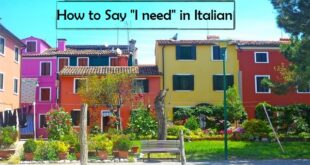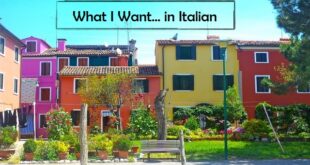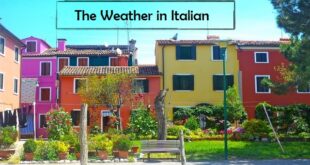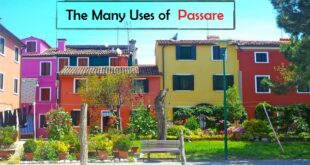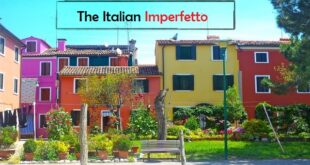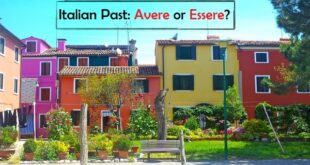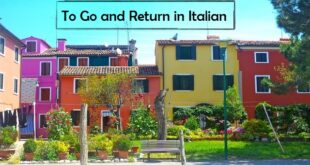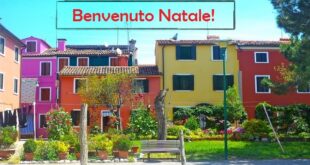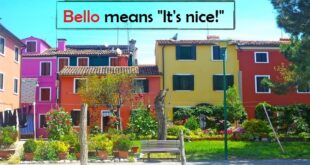Ho bisogno di… When we express our needs, we are also communicating our feelings, and the ability to do this in different ways makes our language skills much more rich. In Italian, there are several verb phrases that can be chosen if one want to express a need: “ho bisogno di,” “mi serve,” and “averne voglia.” Many times, these three verb phrases are interchangeable, but there are subtle differences that determine the choice one makes to use each one. The very popular phrase, “ho bisogno di…” means, “I need…” The verb ho is, of course the first person conjugation of …
Read More »What I want
Volere is an Italian verb that means “to want” or “to need.” Volere ends in -ere, which makes it a second conjugation verb. However, it is also an irregular verb, and the stem will change for all forms except the voi form. As you can imagine, volere is a very important verb to know in order to communicate what your needs are while in Italy, and you will find the io and tu forms are very important to commit to memory. The verb conjugation table below is presented with the visual learner in mind, and this includes color-coding for easy …
Read More »The weather in Italian
For a general assessment of the weather, Italians use the multipurpose verb fare (‘to do’ or ‘to make’) in the third person singular, which you’ll remember is fa. In English, the verb ‘to be’ is used to refer to what the weather actually is outside. Instead, Italians speak of what the weather is doing or making. It’s very important to think in Italian if we want to talk about the weather in Italian. Remember that the reference to “it” in the Italian sentence will be left out, as usual. Below are some examples of how this works, with the correct English …
Read More »The many uses of passare
The Italian verb passare means “to pass,” as in “to pass through,” “pass by,” “pass time,” or “spend time.” This verb is used in many ways in Italian! We use the verb “to pass” or “passed” less often in informal English, often defaulting to more general English verbs like, “get/gone,” “put” or “spend/spent” when we really mean “pass” or “passed.” But in Italian, it is important to be more specific and use the verb passare if you want to sound like a native when describing situations that have come to pass! 1. Use passare when you will “pick up” or …
Read More »The Italian imperfetto
If we want to make general statements in Italian about what has happened in the past, we must be willing to be a little imperfetto! The conjugation of the imperfetto past tense is fairly straightforward. The tricky part is knowing how to use this verb form. The Italian imperfetto refers to the recent past, and is useful when describing events that happened frequently in the past without a specific time frame. The imperfetto in Italian translates into the simple past tense in English and also into “used to” or “was/were…ing.” Let’s learn how to form this tense, which is actually …
Read More »Italian Past: Avere or Essere?
Every Italian student starts by speaking only in the present tense — that is, about what is happening in the “here and now.” But what if we want to refer back to an event that has happened in the recent past, such as this morning, yesterday, or last year? Well, then, will have to learn how to form the passato prossimo past tense! The passato prossimo translates into English as the present perfect tense and the simple past tense; in effect, when we learn this one type of past tense in Italian, we can substitute it for two types of …
Read More »To go and return
On any given day, the most commonly talked about activity is where one is going. We make plans, we go, we return, we talk about our activities along the way, and then we talk about where we went once again at the end of the day! To talk about where one has to go on a certain day seems easy at first. We learn about the Italian verb “to go,” which is andare, in every beginning course in Italian. The Italian verb andare is a bit tricky to use, though, so let’s go through a few pointers. The first thing …
Read More »Let’s email!
Talking about the concept of email in Italian is tricky. For one thing, the word “email” is an English abbreviation for “electronic mail,” and this abbreviation is not easily translated into Italian. For another thing, the way English speakers and Italians talk about email has evolved with each technological advancement in communication, and will probably continue to change in the future. We may find that the terms we use in this blog today have been abandoned for different terms tomorrow! But, let’s try anyway to talk about email the way Italians do — at least for now and hopefully into the …
Read More »Benvenuto Natale!
How to Use Benvenuto! and Italian Holiday Party Conversation “Benvenuto!”* and its variations (Benvenuti! Benvenuta! and Benvenute!) are frequently used Italian interjections that all mean “Welcome!” Guests (gli ospiti) to an Italian household can expect to hear these words as a warm greeting before crossing the threshold into the home (casa) of the host or hosts (la padrona di casa/il padrone di casa or gli ospiti).** Whether family, friend or acquaintance, every guest will be greeted warmly as a sign of the Italian dedication to hospitality for all. And, of course, the Italian Christmas season, which starts in early December and lasts until early January, …
Read More »Bello means “It’s nice!”
How to Use Bello with Singular Nouns Bello is an Italian adjective that one will use often when visiting the “bel paese”—so many people are and places are beautiful, nice, and lovely in Italy! But, the form of this adjective will change according to the masculine or feminine form of the noun (person, place or thing) it modifies, the number of “things” that are beautiful, and also according to where this adjective is placed in the sentence. When referring to a person, bello/bella are used to mean handsome and beautiful, as well as nice, or lovely. Places or things can be beautiful, and also nice or lovely. The …
Read More » Fra Noi Embrace Your Inner Italian
Fra Noi Embrace Your Inner Italian

